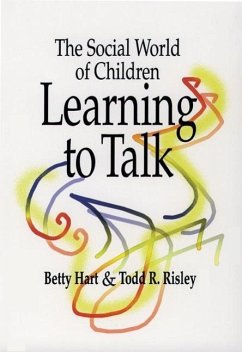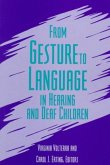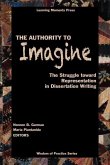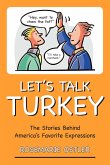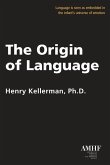The authors use their data from 1,300 hours of observation with 42 children from diverse backgrounds to show you how the children's practice of speech--as shaped by family interaction--affects how they learn to talk. You'll learn how this home-life interaction is a critical link in children's overall speech development and get concepts on supporting children's efforts to learn to talk.
Hinweis: Dieser Artikel kann nur an eine deutsche Lieferadresse ausgeliefert werden.
Hinweis: Dieser Artikel kann nur an eine deutsche Lieferadresse ausgeliefert werden.

